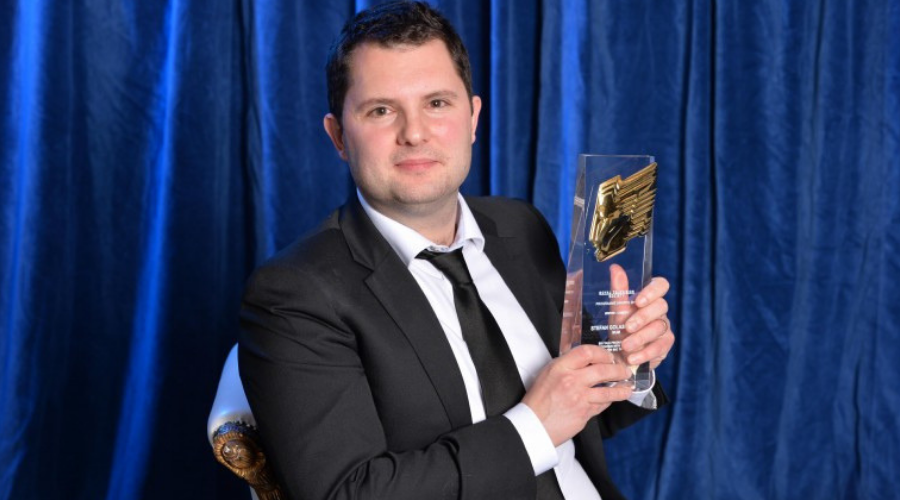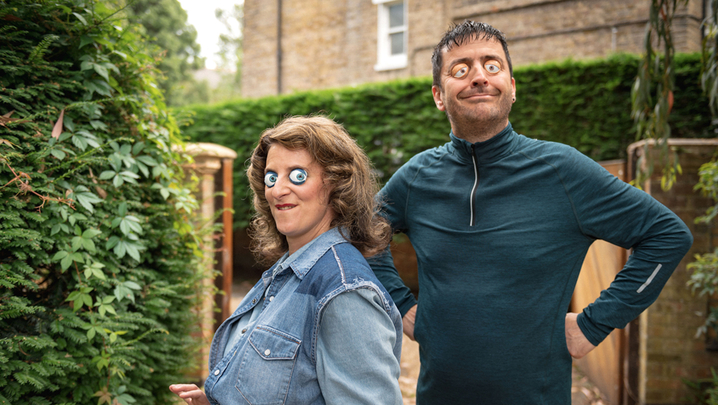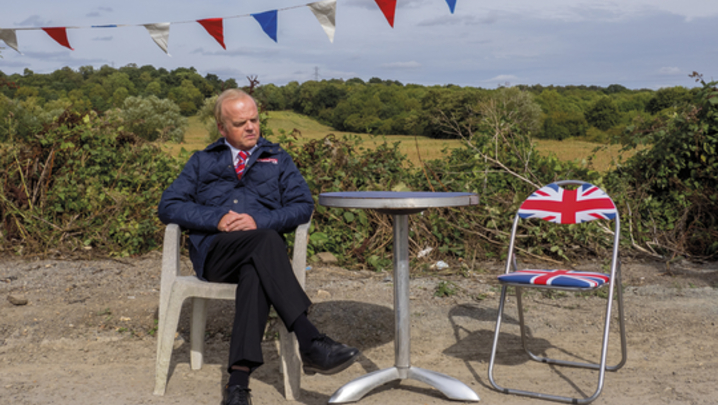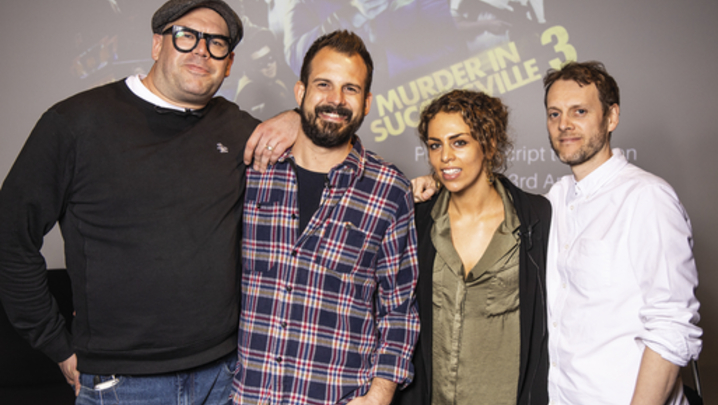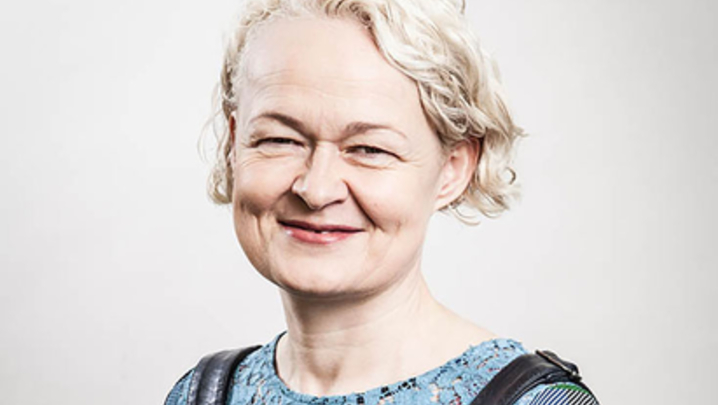Steve Clarke discovers unexpected literary influences on the award-winning comedies of writer Stefan Golaszewski
If anyone ever doubted that comedy and tragedy go hand in hand, look no further than the much-garlanded BBC Two sitcom, Mum, starring Lesley Manville as Cathy, a late-middle-aged mother coming to terms with the death of her husband.
Making a TV audience laugh is among the most difficult skills for any screenwriter to learn, but to make them laugh one minute and almost cry a few moments later is the hallmark of a very special talent.
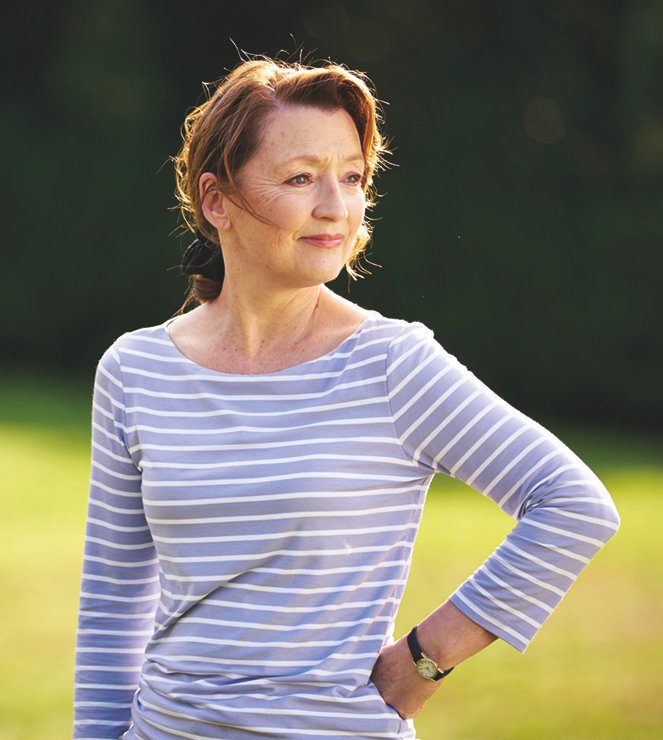
That is precisely what makes Mum such rewarding viewing and, ultimately, why the programme’s creator, Stefan Golaszewski, is such a gifted writer. The show has been quietly pleasing audiences since it launched on BBC Two in 2016.
As RTS and Bafta awards juries have realised, Mum is an acutely observed, throat-catching story rooted in the lived experiences of ordinary British people.
The big themes of sex, love, death, mourning, bereavement, class and ageing are all treated with a tenderness and humour that has assured Mum, produced by Big Talk, of a devoted following during two seasons. The third and final series started on 15 May.
The ensemble cast, led by Manville as Cathy and Peter Mullan as her old flame, Michael, are all brilliant, too. One of the many extraordinary things about the show is Golaszewski’s ability to write such credible female characters.
Not just Cathy, but her putative daughter-in-law, Kelly, and super snob Pauline, her brother’s new partner.
How does he bring such authenticity to these women? “Things like age, gender – add to that race, religion, sexuality or whatever, these identity badges,” says Golaszewski. “If you think of them as just circumstances and then, for the moment, dismiss them and consider the emotions and situations that the individual is going through and load on to them the appropriate identities, that’s how I write the character.”
It is not a simple answer, but perhaps typical of the writer, who is a shy, thoughtful, driven man. He adds: “Cathy is a woman with a kindness and a thought for others who also happens to have lived for 60-odd years and happens to be a woman. So you feed all those things into the character.
"The essential problem that Cathy has – the loss of self and how, across the three series, she can find that self again"
“But the thing I always focus on is the individual at the centre of it and the thing she desires and the ways in which those desires are thwarted.”
Is his own mum like that? “Not particularly. My mum is very kind and generous and very loving. I think motherhood itself, as an enterprise, requires so much loss of self. That seems to be the only way to cope with how hard it is to be a mother, from what I’ve observed.
“It’s very hard to talk about that as a man without sounding patronising, but that loss of self seems to be an essential component of becoming a mother. I suppose that is the essential problem that Cathy has – the loss of self and how, across the three series, she can find that self again.”
In many ways, Mum builds on some of the great archetypes of British sitcom – and then gently adds a few extra, excruciating emotional layers. In Pauline, there are echoes of characters like Keeping Up Appearances’ Hyacinth or The Good Life’s Margo.
As for Kelly, who can’t help but keep putting her foot in her mouth, Golaszewski puts it like this: “I don’t like the phrase ‘dumb blonde’, but she might be perceived as that. You go into why is she like that? I don’t think people are stupid.… So why is she like this?
“Why does she say the wrong thing? She’s scared. What is she scared of? Why doesn’t she believe in herself? So you dig into that a bit.…
“In series 3, Kelly becomes one of the wisest characters. In series 1, she’s had an unpleasant history of relationships but, through the affirmation that Cathy and Jason (Cathy’s son) give her, she is able to figure out how to be herself and not this shell of a person trying to do a bad impression of her mum or trying to survive under her mum’s arrows.”
Mum is, in fact, the second sitcom written by Stefan Golaszewski, who is 38 and whose love of words was obvious when he first started writing stories at school in his native Essex. His paternal grandfather was a Polish immigrant who fled to the UK at the end of the Second World War. On his mother’s side there is Irish blood. This might help explain his prowess with words.
After writing and performing with the Footlights at Cambridge (he read English at Churchill College) and doing comedy at the Edinburgh fringe, Golaszewski continued to follow the traditional path of generations of funny people by finally getting a show commissioned by Radio 4.
The only difference was that he wasn’t middle class. He says that he originally got involved with Footlights out of perversity. “I was told that Footlights was full of posh idiots,” he recalls. “So, me being angry and 19 and not posh, I thought I’d go along and annoy the posh idiots.
“And it wasn’t full of posh idiots. I think I still annoyed them, but they asked me back. They continued to ask me back. I thought: maybe I’ll stop trying to annoy the posh idiots and see how this goes.”
But the breakthrough didn’t come until he was 28, when BBC Three hired him to write Him & Her, the flat-sharing sitcom that centred on the amorous adventures of twentysomethings Becky and Steve.
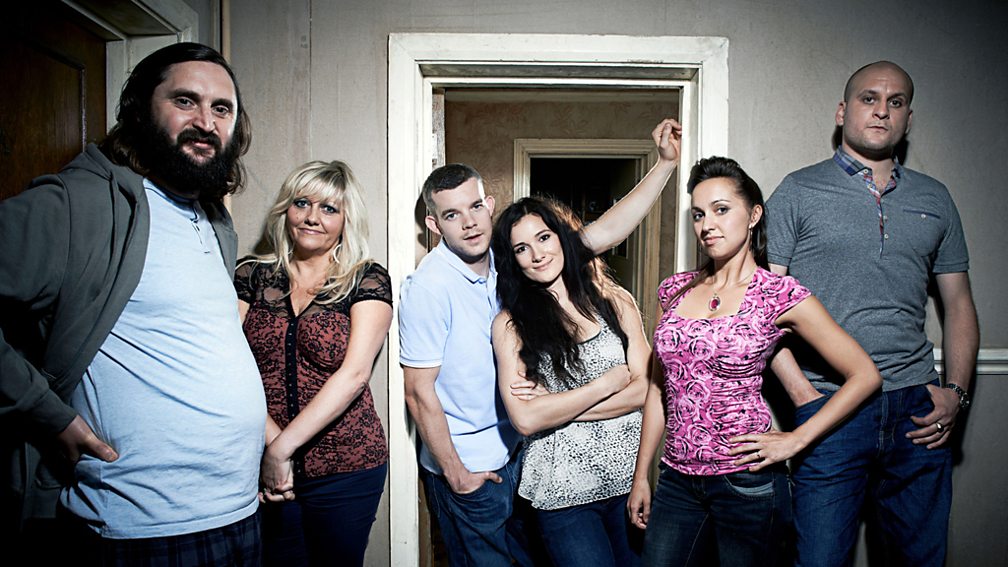
The show got some rave reviews. More importantly, it gave Golaszewski the opportunity to learn to write TV comedy on the job. “I was very lucky to be 28 and be given a sitcom on BBC Three that no one saw and then to be trusted by Kenton Allen at Big Talk and be guided by Richard Laxton [the director of Him & Her, who also directed season 1 of Mum]. And for my writing to be made a better version of itself rather than to be more normative.
“Writing Him & Her, I did about a series a year for four years. I was on set a lot of the time and in the edit. That is a lot of writing very quickly, so it was like a crash course. That really helped.”
As does his complete immersion in his work. He also writes for the stage and directed seasons 2 and 3 of Mum. “I think about writing all the time. I am obsessed with it and I am obsessed with the craft of it, everything to do with it. I’ll think about it at 3am when I go for a wee. It’s an ever-present journey.”
What, then, are his influences – apart from the obvious ones such as comedy classics Keeping Up Appearances, Ever Decreasing Circles and The Good Life? It would seem they are impressively eclectic and, unusually, encompass Chaucer and some of the great 19th-century English storytellers.
Of the author of The Canterbury Tales, he says: “What I found fascinating about him is the simplicity of what he wrote and the depth that he achieved in his writing style – total simplicity. But by nuance, context and irony, the hugeness that he could bring.”
These traits are all evident in Mum. So, too, is what Stefan Golaszewski says about the likes of George Eliot (Middlemarch is his favourite novel) and Thackeray: “What is lovely about some of those Victorian novelists is the warmth and kindness of the narrative voice. They’re quite unfashionable, because they talk to the reader. I find that lovely. There is so much empathy in those books.”
He adds: “I’d say that, more than anything else, in its style Mum is more influenced by books. What’s wonderful about a good book is the deep humanity and the care for everyone in the book and the love of the narrative for the characters and the understanding of them. That’s what I wanted to achieve.”

